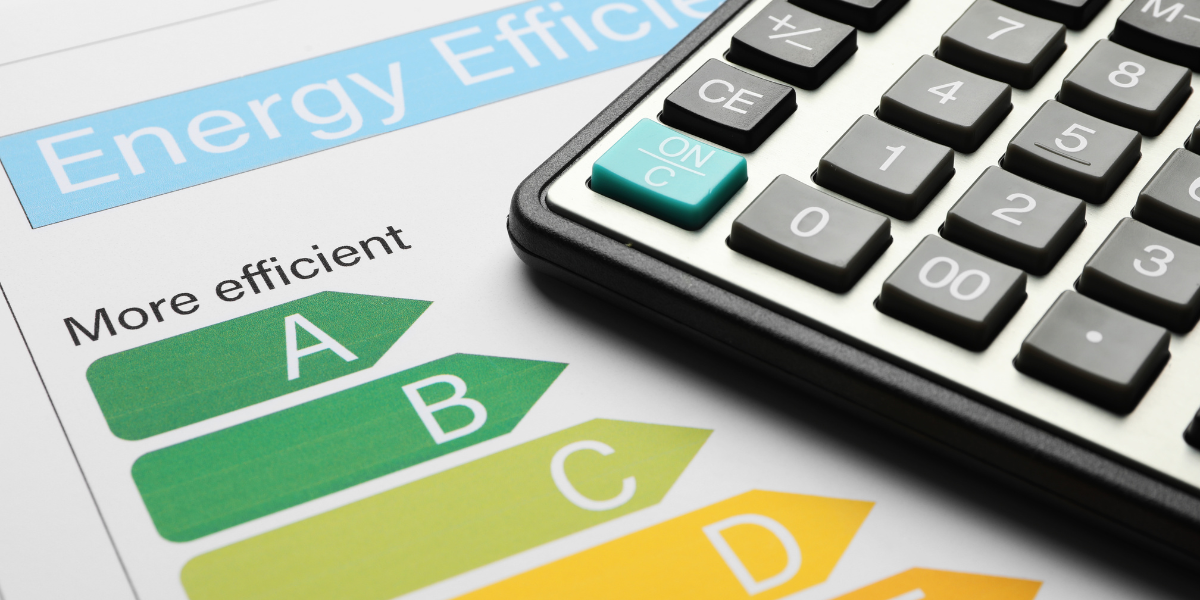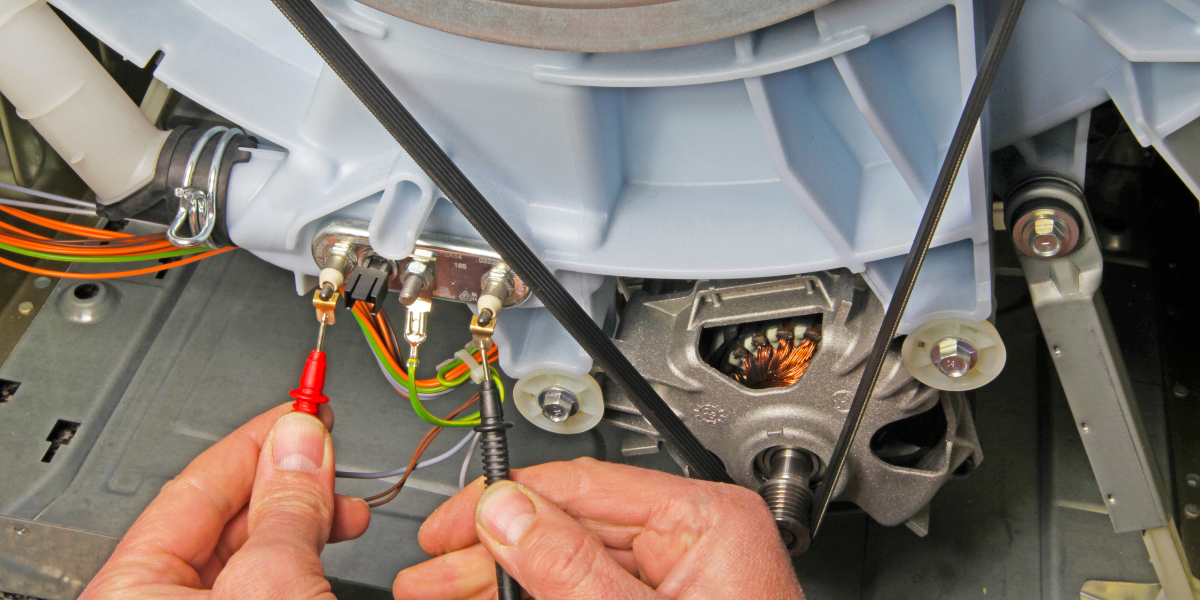Things to Consider Before Buying a Major Appliance
From the finances to the finishes, let’s figure things out
When the time comes for you to purchase a new major appliance, where do you even start?! There are numerous brands, models, colors, features, and prices to choose from. When the internet gives you access to everything, how do you figure out what is worthwhile? Since the lifespan of these appliances can range from 7-15 years, we understand that this isn’t a decision you need to make often. Whether it’s time for a full kitchen remodel, or your dryer is beyond repair, buying a new appliance is an investment that requires some upfront research. We break down 7 areas you should consider when it comes to your new appliance decision making, which should help you narrow it down to the perfect machine for you!
What’s Your Budget?
This might be one of the most crucial factors to consider, as you’ll want to make sure your wish list aligns with your budget. If you want an appliance with all the bells and whistles, it will come at a higher price. If you just need a basic machine, you can save money here. Perhaps you have to make some compromises on which features are necessary, and which are just nice to have. If a new appliance isn’t an immediate need, waiting for a sale can help you save on the cost. Some other options to consider are if you need a complete set, or just one machine. Some retailers may offer discounts for a full kitchen set (fridge, range, dishwasher) or a laundry set (washer and dryer). If having a cohesive look is important to you and your whole kitchen needs an update, this may be a worthwhile discount to take advantage of. Something to keep in mind when making your budget is that “more expensive” doesn’t necessarily mean “better.”
How’s the Energy Efficiency Rating?
The energy efficiency of an appliance is related to your budget, as a machine that uses less power or water can help you save more money over its lifetime. If you’re a busy household that does a lot of laundry or dishes, those machines might be running multiple times a day. When shopping around, look for the EnergyGuide label (USA) or EnerGuide (in Canada) which will tell you how much energy the appliance uses. You may also see an Energy Star label, which is a voluntary rating, but it is used widely throughout North America and Europe. Appliances can be energy efficient but not have an Energy Star rating, so be sure to check all labels and compare the kWh usage between models you’re considering. Many government regulations have been put in place over the years, which means manufacturers have minimum energy standards their machines need to achieve. It’s likely that a brand-new appliance may be way more energy efficient than the 20-year-old one you’re replacing, just by default.

What Size and How Much Space?
Bring a tape measure to the stores with you, along with the list of dimensions for your space! Major appliances are bulky and heavy pieces, and you do not want to discover your new range is 2 inches too wide once it’s already been carried into your kitchen. Same thought process if you’re working with a limited space like a hall closet for your laundry. Along with the exterior measurements, you’ll also want to ensure the appliance has the interior space to fit your needs. If you’ve got the room, maybe a larger capacity washer can help you get more loads done. What about the fridge storage, does it offer enough room for your typical grocery haul? The direction and amount that the doors open is another measurement to consider. Would two French doors on a fridge work better in your kitchen than one large door? Would a top load be a better use of space in a laundry closet than a front load? If you’re going to invest in a new appliance, you should make sure it fits all aspects, not just the physical space it will occupy.
What are the Features and Technology Options?
This is the area where the costs can creep up if you’re not careful! Manufacturers are adding so many new features and bits of technology to appliances these days. Some of which can and will make your daily tasks easier, while others are merely marketing jargon. It’s important to be critical here when doing your research and decide what is truly a necessity versus what would be nice to have. If you just use your oven to cook frozen pizza (zero judgement from us!) you probably don’t need a convection range with steam injection. If smart home technology seems invasive, then a dishwasher with Wi-Fi connection likely isn’t on your wish list. However, if you bake fresh bread every morning, or love the idea of starting the dishwasher from the couch, buying appliances with these added features will be worth it for you.
Does it Have the Style and Finish You Want?
Perhaps not as important as how well the machine works, but the style of the machine shouldn’t be ignored. You will be looking at these appliances every day, and liking the way they look can make all the difference. While more budget conscious appliances may have limited color choices, you can still get coveted stainless steel without breaking the bank. If your dream kitchen features a retro avocado-green refrigerator, that style decision will mean an increased budget. While the color may not make any difference to you, you should be conscious of the style and finishes you select. A classic farmhouse kitchen may look jarring with sleek modern appliances, while an updated industrial style kitchen may look out of place with builder-grade white machines. If you’re only replacing a single appliance, and not buying a complete set, matching the existing appliance’s color will help make the space more cohesive.

How are the Product Reviews?
Internet reviews can be both a blessing and a curse. If you’ve narrowed down a model that you’re interested in, read the consumer reviews across multiple sites. Take note if you see the same issue mentioned a few times. Consumer Reports also provides unbiased reviews on products, if you want to ensure what you’re reading wasn’t written by bots or paid reviewers. Along with the reviews, check to see if there is also a Question-and-Answer section, as that may provide you with more details about the appliances. Major appliances are an investment, and not something you frequently purchase, so be critical when reviewing the reviews. Keep in mind that no machine is perfect, and some people just can’t be pleased. If the general consensus is favorable however, then you have found yourself a winner!
What Will Maintenance and Repairs Be Like?
How difficult or expensive will this appliance be to maintain and repair? Are parts easy to get? Is the machine difficult to access? Is there a good warranty available from the manufacturer? These are all things to consider before you make the purchase. Major appliances will eventually have a part fail or break. Maybe it’s an easy fix like a burner knob, but it could be a bigger electrical problem or an issue that will require an expert repair instead of DIY. Something to keep in mind is the more features or technological advances your new appliance has, the more opportunities there are for a component to fail. Knowing this information ahead of time can save you the headache when something inevitably comes up. If you want to check parts availability, just pop the model number into our site to check!

If you’ve considered all these factors when doing your research, you should have a good idea of what your new appliance options are. If you’ve been doing your research online, the next step is heading into your favorite local retailer and checking out the machines in person! You may discover that a color or finish looks different in person, or the sales rep may have knowledge about a feature you hadn’t considered prior. We’re confident that with this thorough research, you’ll make the right choice for you and your home!
